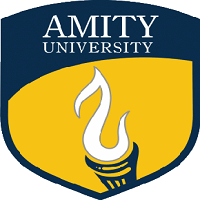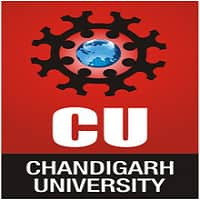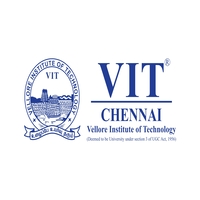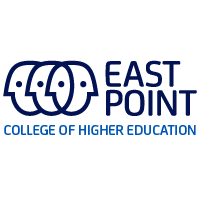Silver Oak University B.com Admissions 2025
Management Conclaves | Industrial visits to eminent companies | Celebrated guest speakers
B.Com M.Com is an integrated course in commerce specialisation that ranges from four to five years, depending on the college. This dual degree is offered by many universities to provide students with the introductory and advanced knowledge needed in the field of commerce by combining two degrees- B.Com and M.Com.
CUET 2025: MCQs, PYQs, Mock Tests | Syllabus | Participating Colleges
Also Check: CUET College Predictor
The combined integrated B.Com M.Com course offers a proper understanding of accountancy, business statistics, economics, business administration, and finance. Those who are sure about pursuing a master's degree after their BCom from starting can directly benefit by opting for a B.Com M.Com Integrated Course, as it saves them time.
B.Com M.Com stands for Bachelor of Commerce- Master of Commerce. An integrated course, BCom MCom has been designed keeping in mind the needs of 10+2 students. At the end of the course, students will complete two degrees within a span of four or five years.
The programme has been introduced to add more value to BCom. By getting this degree, students will get a chance to get two academic degrees in one shot.
| Particulars | Values |
|---|---|
| Course Name | Bachelor of Commerce + Masters of Commerce (B.Com M.Com) |
| Course Type | Integrated course |
| Course Duration | 4 or 5 years (depending on the college or university) |
| Eligibility Criteria | Candidates should have at least 45% marks 10+2 |
| Course Fees | Rs. 1.2 LPA to Rs. 4.0 LPA |
| Average Salary | Rs. 4.5 LPA |
| Job Profiles | Accountant, Investment Banker, Bank Manager, Finance Manager, Risk Analyst |
The fee structure is well planned by the management authorities keeping various things in consideration. Candidates with meritorious backgrounds are provided with a concession in fee as financial assistance. The academic fee includes charges for all the facilities provided to students for a better learning experience. The average B.Com M.Com fee ranges from Rs. 1.2 LPA to Rs. 4.0 LPA.
Pursuing this integrated course ensures that students get a degree equivalent to a postgraduate, which ensures that they stay ahead of their peers. The programme enables students to get both a postgraduate and undergraduate degree in one shot. The best part is students do not need to apply for a postgraduate programme separately.
The following are the eligibility criteria that the candidates need to adhere to for applying for an integrated B.Com M.Com course-
Management Conclaves | Industrial visits to eminent companies | Celebrated guest speakers
B.Sc (Hons) Admissions 2025 Now Open | Ranked Among the Top 100 Universities in the World by QS World University Rankings 2025 | Last Date: 28th Apr'25
The majority of universities or colleges in India follow a direct admission process for students aspiring to join the B.Com + M.Com course.
For aspiring students, fulfilling essential eligibility criteria to get into the B.Com M.Com course is just one side of the coin. The other side, which is of equal importance, is to possess the qualities and skills that are required to pursue a degree in an integrated B.Com M.Com course.
The syllabus for integrated B.Com M.Com degree will have slight variations from college to college. This is why it is advised that the aspiring students check the course’s structure from the website of the university they are applying to, to get a complete understanding of the course.
However, to give aspiring students an idea of the syllabus and subjects that they will have to delve into, here is the BCom MCom course syllabus of MDU, Rohtak.
The first year of the BCom MCom integrated course provides basic knowledge of business and finance. Check the table below to know the subjects taught in the first year of the BCom MCom integrated course.
| Semester 1 | Semester 2 |
|---|---|
An Introduction to Statistics | Financial Accounting for Business |
Business Communication | Business Economics |
Business Organisation | Business Statistics |
An Introduction to Accounting | Business Management |
Fundamentals of Economics | Business Law - II |
Business Law - I | Introduction to Computers |
Slowly from the second year, advanced knowledge of accounting, law, banking, and marketing is provided to students. Check the following table to know more.
Semester 3 | Semester 4 |
|---|---|
Business Mathematics | Corporate Accounting – II |
Corporate Accounting – I | Business Ethics |
Cost Accounting | Company Law – II |
Company Law – I | Money and Banking |
Principles of Marketing | Financial Institutions |
Basics of Information Technology | Auditing |
The third year emphasises more on management subjects in addition to basic computer knowledge. Below are the subjects taught in the third year of the BCom+MCom course.
Semester 5 | Semester 6 |
|---|---|
Financial Management | Managerial Accounting |
Investment Analytics | International Business |
Indian Economy: Growth and Management | Income Tax Law and Administration |
Retail Management and Sales Procedure | Human Resource Management |
Income Tax | Business Environment |
Insurance and Risk | Computer Programming |
The fourth year of the BCom+MCom course includes accounting, management, business environment, and workshops. Check the syllabus for more.
| Semester 7 | Semester 8 |
|---|---|
Accounting for Managers | Management Accounting |
Management Concepts | Organisational Behaviour |
Indian Business Environment | Economics Environment of Business |
Elementary Managerial Economics | Managerial Economics - I |
Statistical Analysis for Business | Quantitative Techniques for Managerial Decisions |
Workshop on Computer Applications | Workshop on E-Commerce |
The final year of the programme is summed up by a project and a couple of optional papers in addition to regular management subjects. The following table highlights more information:
Semester 9 | Semester 10 |
|---|---|
Strategic Management - I | Strategic Management – II |
Accounting Theory | Accounting Theory and Practice |
Project Report | Optional Papers - 4 |
Optional Papers - 4 | - |
The major specialisations offered under the BCom MCom integrated course are listed below:
After receiving the integrated B.Com M.Com degree, students will have a host of job options and job profiles to choose from as there is a rising demand for highly-trained and qualified professionals. Those who want to pursue higher education may opt for a Ph.D in the relevant specialisation.
After completing the BCom MCom degree, one can apply for jobs in private and public sectors. Some BCom MCom job roles are listed below.
Accountant: An accountant is a professional who has the responsibility of keeping and interpreting the financial records. Accountants usually have the responsibility of dealing with a wide variety of finance-related jobs for both larger businesses and organisations or individual clients employing them.
Investment Banker: An investment banker is a professional who works in a financial institution or bank and is involved in raising capital for companies and governments. Their duties range from raising money, advising, research, brokerage services, and asset management.
Bank Manager: A bank manager oversees the local branch of a bank, which automatically means that they have many responsibilities, from a host of banking functions to managerial duties. A bank manager is responsible for the entire operation and administration of the branch.
Cashier: A cashier is a professional who has the responsibility of facilitating money transactions with customers by accepting cash, cheques, credit, or debit. A cashier's duties highly depend on their place of employment, but they primarily deal with operating cash registers and handling money transactions with customers.
Finance Manager: A finance manager is responsible for the financial health of an organisation. They have the responsibility of preparing financial reports, directing investment activities, and developing efficient strategies for the financial goals of their particular organisation.
Risk Analyst: A risk analyst is a professional who examines and evaluates an organisation’s financial documents, and investment portfolios, alongside economic conditions to determine risks involved when making any business decision.
Finance Consultant: A finance consultant has the responsibility of helping clients accomplish their financial objectives by developing and presenting financial strategies and monitoring changes in financial status. They identify and evaluate new financial strategies alongside recommending changes in goals and plans for their clients.
The salary of a candidate varies based on the company, experience, and position at the workplace. However, to give you a general understanding of the average salary for some of the job profiles/positions, here is the list-
Job Profile | Average Salary |
|---|---|
Accountant | Rs. 3.3 LPA |
Finance Manager | Rs. 11.5 LPA |
Bank Manager | Rs. 8.8 LPA |
Risk Analyst | Rs. 7.6 LPA |
Investment Banker | Rs. 16.8 LPA |
Source: Ambition Box
After completing the integrated B.Com M.Com degree, graduates have plenty of job opportunities in the private and public sectors.
India has plenty of colleges that offer academic courses in commerce disciplines. But, few colleges offer B.Com with integrated M.Com. We have listed below the top private B.Com+M.Com colleges in India.
There are numerous commerce colleges in India. Colleges offering integrated B.Com M.Com courses are limited. Atal Bihari Vajpayee Vishwavidyala, Bilaspur is a government college in India that offers B.Com M.Com integrated programme.
In the era of globalisation, commerce is undoubtedly, one of the most chosen study courses. The integrated B.Com M.Com course nourishes young minds with knowledge and skills that can cope with the emerging requirements in the field of commerce.
SSU Birbhum, MJRP Jaipur, SVVV Indore, ITM Vocational University Vadodara, and Atal Bihari Vajpayee Vishwavidyalaya Bilaspur are the top providers of BCom MCom integrated courses.
Investments Analyst, Business Analyst, Investment Banker, Marketing Manager, Market Analyst, Assistant Accountant, and Accountant to name a few are the available career options for graduates.
The integrated B.Com M.Com course is mostly for four or five years depending on the university. An aspiring student can pursue this course right after clearing 10+2 exams.
Yes, of course. You can opt for this course after clearing 10+2 in the science stream. It is possible for students from science stream to change streams.
Hello Aditi,
Doing B.Com (//B.Com) without math is possible, but for a masters in buiseness analytics at NUS, strong quantitative skills and maths background are usually required. if not eligible, you can pursue BBA in buiseness analytics fom indian colleges like NMIMS, Christ University or Symbiosis, which accept non- maths students. these programs build foundational skills needed for future analytics studies.
HELLO,
The BCom Honours application forms typically release after the 12th board exam results are declared, usually around June or July. For exact dates it's best to check the official website of the university or college you are applying to as the timeline can vary by institution.
Hello,
DG Vaishnav College in Chennai typically releases application forms for BCom General admissions shortly after the publication of the 12th-grade results.
According to the college's guidelines, the application submission deadline is usually 10 days from the date of the +2 (12th-grade) result announcement.
Hope it helps !
Hello,
The **cost of a B.Com degree varies based on the college and university. In government colleges, fees range from 5,000 – 50,000 per year, while in private colleges, it can be 50,000 – 3,00,000 per year.
Admission Process:
1. Merit-based (Class 12 marks) – Common in most universities.
2. Entrance exams – Some institutes like DU, BHU, or Christ University conduct their own tests.
https://www.careers360.com/courses/b-com-bachelor-of-commerce
Yes, for admission to B.Com (Hons.) in a Government PG College, appearing for the CUET (Common University Entrance Test) is usually compulsory, depending on the college and university it is affiliated with. Many government colleges now follow the CUET for undergraduate admissions, but some state government colleges may have their own admission process.
It’s best to check the official website of the specific college or university you are applying to for the latest admission criteria.

Ranked as India’s #1 Not for profit pvt. University by India Today

Ranked #1 Among all Private Indian Universities in QS Asia Rankings 2025 | Scholarships worth 210 CR

#10 in India by NIRF Ranking | Institution of Eminence by Govt. of India | Scholarships Available | Highest CTC 88 LPA

NBA Accredited | AICTE Approved | Avail 50% Off on Application Forms | Last Date: 19th Apr’25 | Use Code: Careers360
India's Largest University | NAAC A++ | 100% Placements Record | Highest CTC 2.5 Cr PA | 145 + Programmes in 55+ Disciplines | End Date : 15th Apr’25
#41 in NIRF | 50 LPA Highest CTC, Ranked #1 in Academic Reputation in India by QS World University Rankings | Last Date to Apply: 28th April